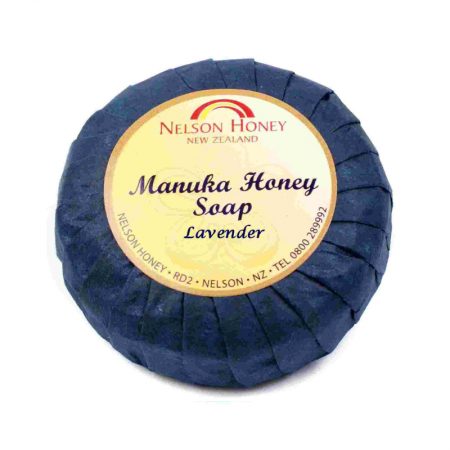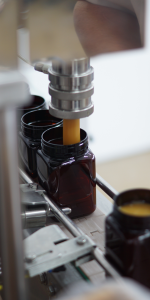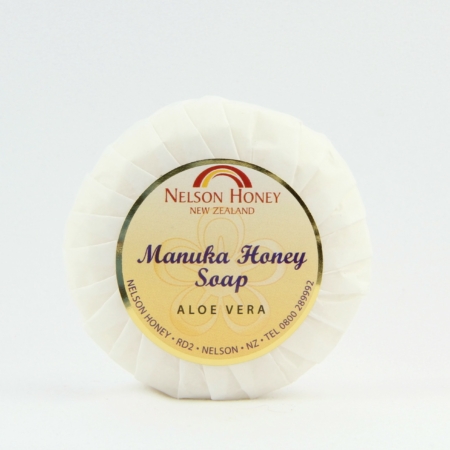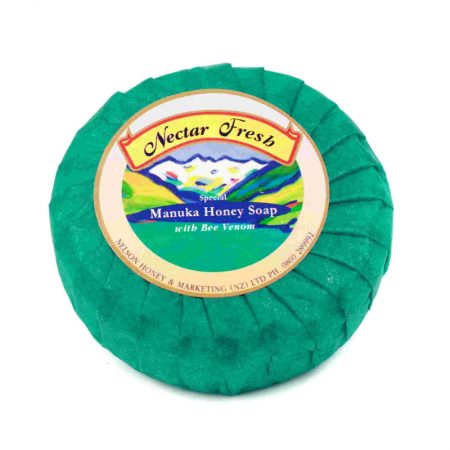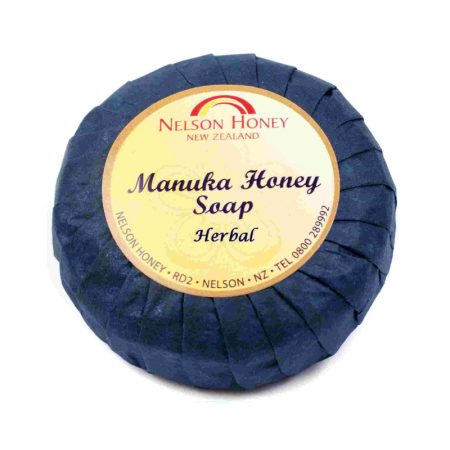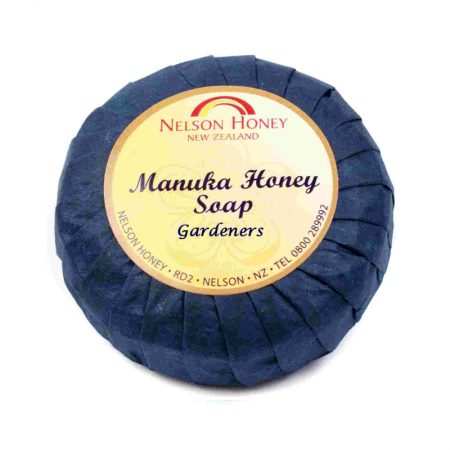Description
This lovely moisturising and soothing soap contains the finest of natural ingredients including Manuka Honey and Lavender.
The carefully blended ingredients cleanse, nourish and enrich your skin. Mild and gentle, our triple milled soap is naturally moisturising due to the high level of glycerine and has a neutral pH, making it a superior alternative to commercially produced soap.
Our Manuka Honey Soap with Lavender is the most gentle of all our soap range and helps people with skin conditions.
Our Manuka Honey Soap with Lavender can be used daily to gently cleanse and nourish your hands. Alternatively use it in the shower to nourish and enrich your whole skin.
Natural ingredients
All our Soaps contain natural ingredients. Our Manuka Honey Soap with Lavender ingredients are Sodium Palmate, Sodium Palm Kernelate, Water, Lavender Oil, Manuka Honey, Sodium Chloride, Glycerine, Titanium Dioxide, Tetrasodium EDTA, Tetrasodium Etridonate.
Size: 70g
Science of Honey
Honey has been used since ancient times for its special properties. Good quality honey can contain beneficial plant compounds including antioxidants. It contains high levels of glucose and fructose, a natural alternative to those wishing to avoid refined sugar. However, the composition of a honey batch depends on the floral source(s) available to the bees that produced the honey.
Nelson Honey operates a team of beekeepers and has hives located throughout the beautiful regions at top of the South Island of New Zealand. Hives enjoy spectacular and remote locations including Maori Bay in the Marlborough Sounds and Rainbow Station in St Arnaud.
Here at Nelson Honey we can trace our honey back to the hives they came from and our team of beekeepers maintain the health and happiness of all our bees.
Manuka Honey
There has been much research done on the components of manuka honey, leading to worldwide acclaim of this wonderful honey.
Manuka Honey is unique to New Zealand and its special benefits have been a traditional part of folklore throughout New Zealand’s settled history.
At Nelson Honey, we test all our Manuka Honey for MGO (Methylglyoxal) activity along with other chemical markers to ensure that it is authentic manuka honey. Methylglyoxal is expressed as a minimum number of mg/kg and scientific evidence has confirmed it as being a key compound that occurs naturally in Manuka honey.
Honeydew Honey
While Manuka Honey is extremely well-known for its special properties, our Honeydew Honey has some special characteristics. It contains complex sugars called Oligosaccharides.
|
Average Nutritional Value per 100 g
|
| Energy |
1,340 kJ (320 kcal) |
| Carbohydrates |
79.6 g |
| Fats |
0 g |
| Protein |
0.4 g |
| Water |
17.10 g |
| Riboflavin (vit. B2) |
0.038 mg |
| Niacin (vit. B3) |
0.121 mg |
| Pantothenic acid (B5) |
0.068 mg |
| Vitamin B6 |
0.024 mg |
| Folate (Vit. B9) |
2 μg |
| Vitamin C |
0.5 mg |
| Calcium |
6 mg |
| Iron |
0.42 mg |
| Magnesium |
2 mg |
| Phosphorus |
4 mg |
| Potassium |
52 mg |
| Sodium |
12 mg |
| Zinc |
0.22 mg |
Read More

